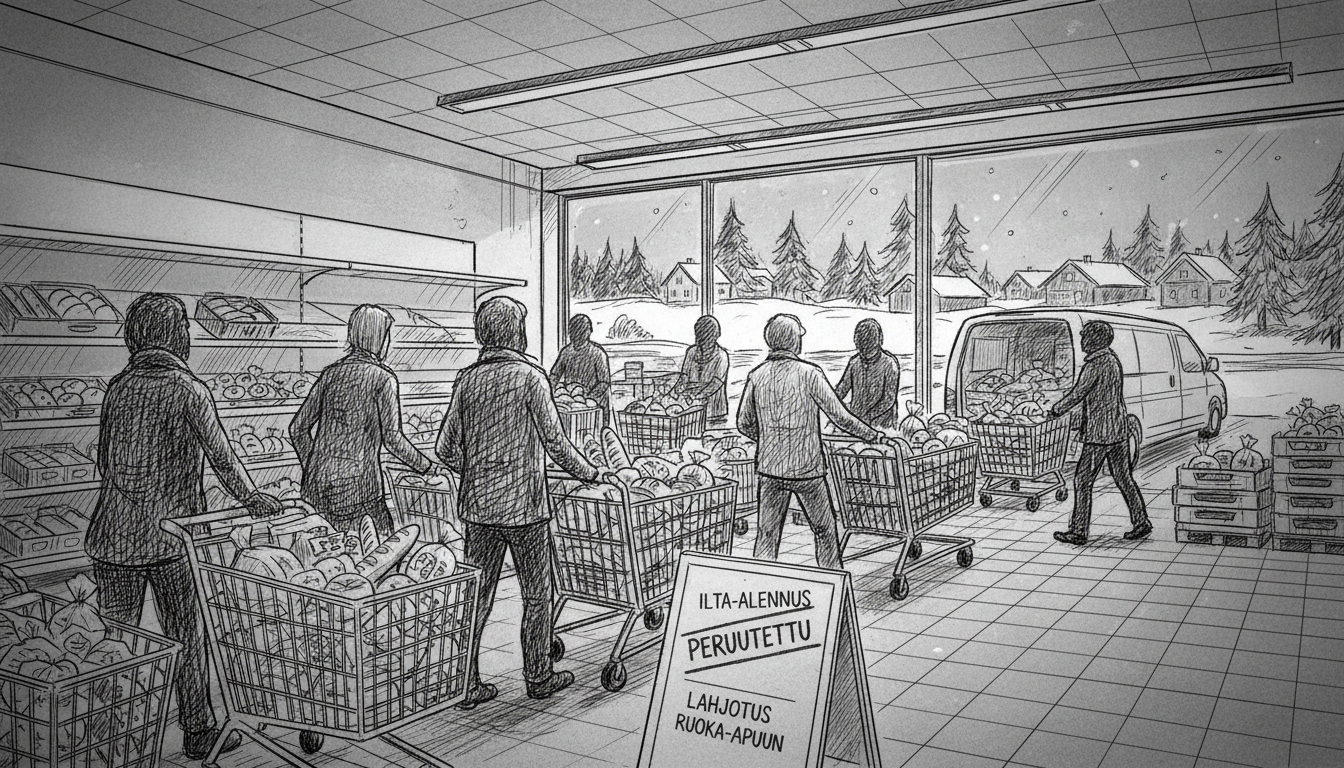A Finnish supermarket has canceled its evening bakery discounts after customers began hoarding products before the price reductions even started. The S-Market Plaza store in Salo stopped its 60% evening discount on baked goods after groups of shoppers arrived hours early to fill their carts, then waited until the discount period began to pay.
Customers would arrive around 6 PM, load their carts with bakery items, and linger in the store until the 8 PM discount took effect. The store ultimately discontinued the practice and now donates unsold baked goods to food aid organizations instead.
S Group's sustainability expert Iida Lehtimäki addressed the situation in a statement. She said this type of hoarding does not represent a nationwide problem in Finland. Most customers use evening discounts as part of their normal shopping routine, she explained. Bulk buying of discounted bakery products remains rare across the country.
Lehtimäki noted that bakeries already manage waste effectively by baking according to daily demand. Many locations don't even need evening discounts because they control production so carefully. S Group has reduced food waste by 31% since 2014 through various measures, with date-based discounting being the most visible to customers.
The national evening discount practice has been in place at S Group stores for eight years. Meanwhile, K Group takes a different approach. Their communications manager Helena Viinanen said K stores don't have uniform evening discounts. Each store operator decides their own discount policies independently.
Viinanen confirmed that K Group's grocery stores haven't experienced similar hoarding phenomena. She did note that discounted products with red price tags currently see high demand across their stores.
This situation highlights the delicate balance Finnish retailers face between reducing food waste and maintaining fair access to discounts. While evening discounts effectively move products nearing expiration, they can create unintended behaviors among some shoppers.
The Finnish approach to food waste reduction represents a broader Nordic commitment to sustainability. Finland has been a pioneer in addressing food waste through both retail initiatives and consumer education. The country aims to halve food waste by 2030 as part of its national climate program.
For international readers, this story offers insight into Finnish shopping culture and environmental priorities. The Nordic region consistently leads in sustainability efforts, and grocery retail represents a key battleground in the fight against food waste. The incident in Salo shows how even well-intentioned programs can encounter unexpected challenges.
What happens next remains uncertain. Other stores might reconsider their discount strategies if similar hoarding emerges. The donated bakery items now support food aid organizations, creating a different kind of social benefit. This development demonstrates how Finnish retailers continuously adapt their approaches to balancing commercial, environmental, and social considerations.

